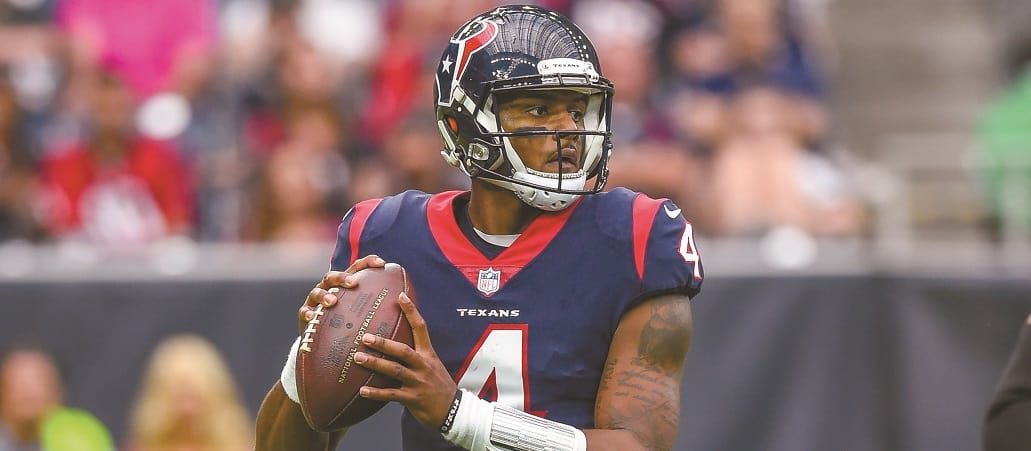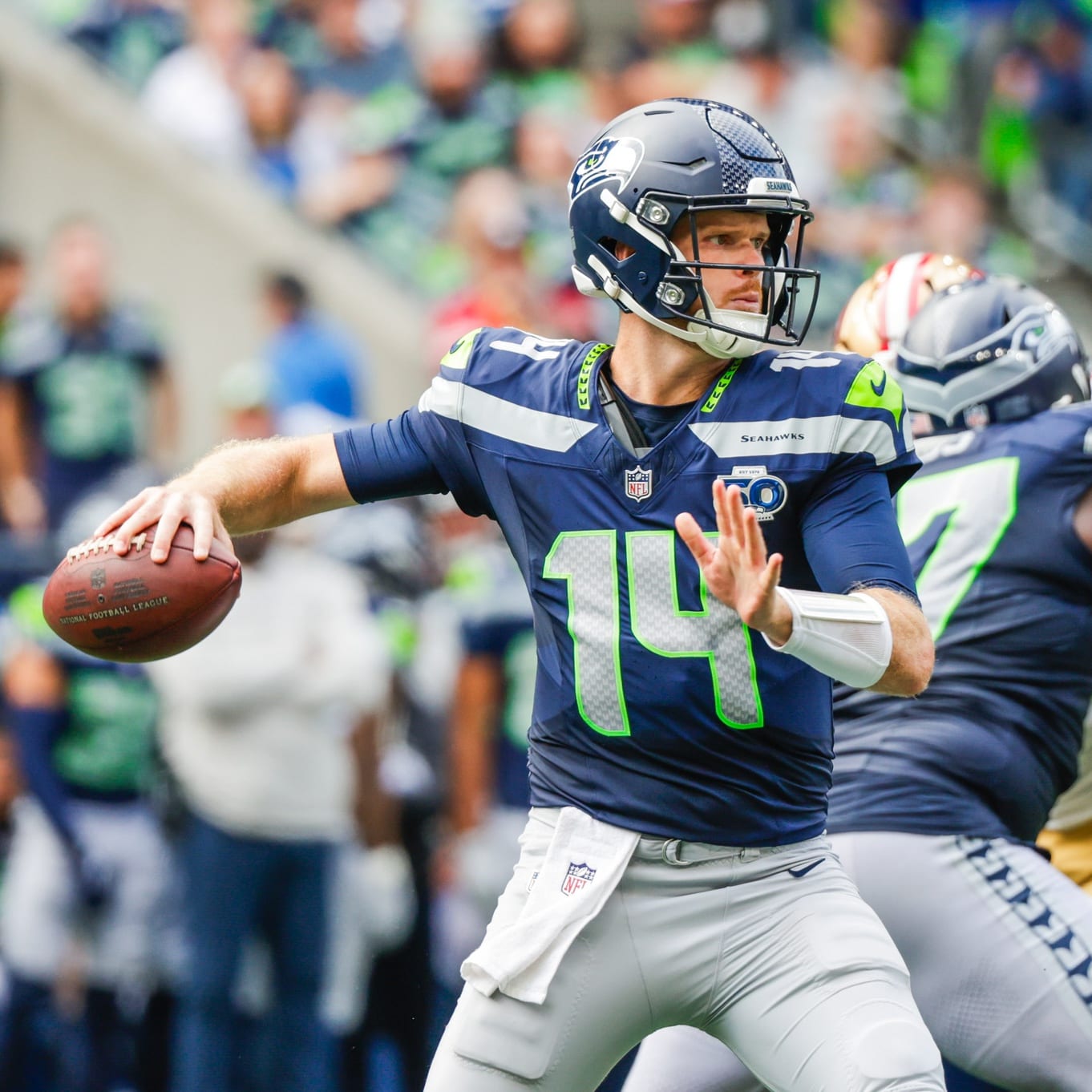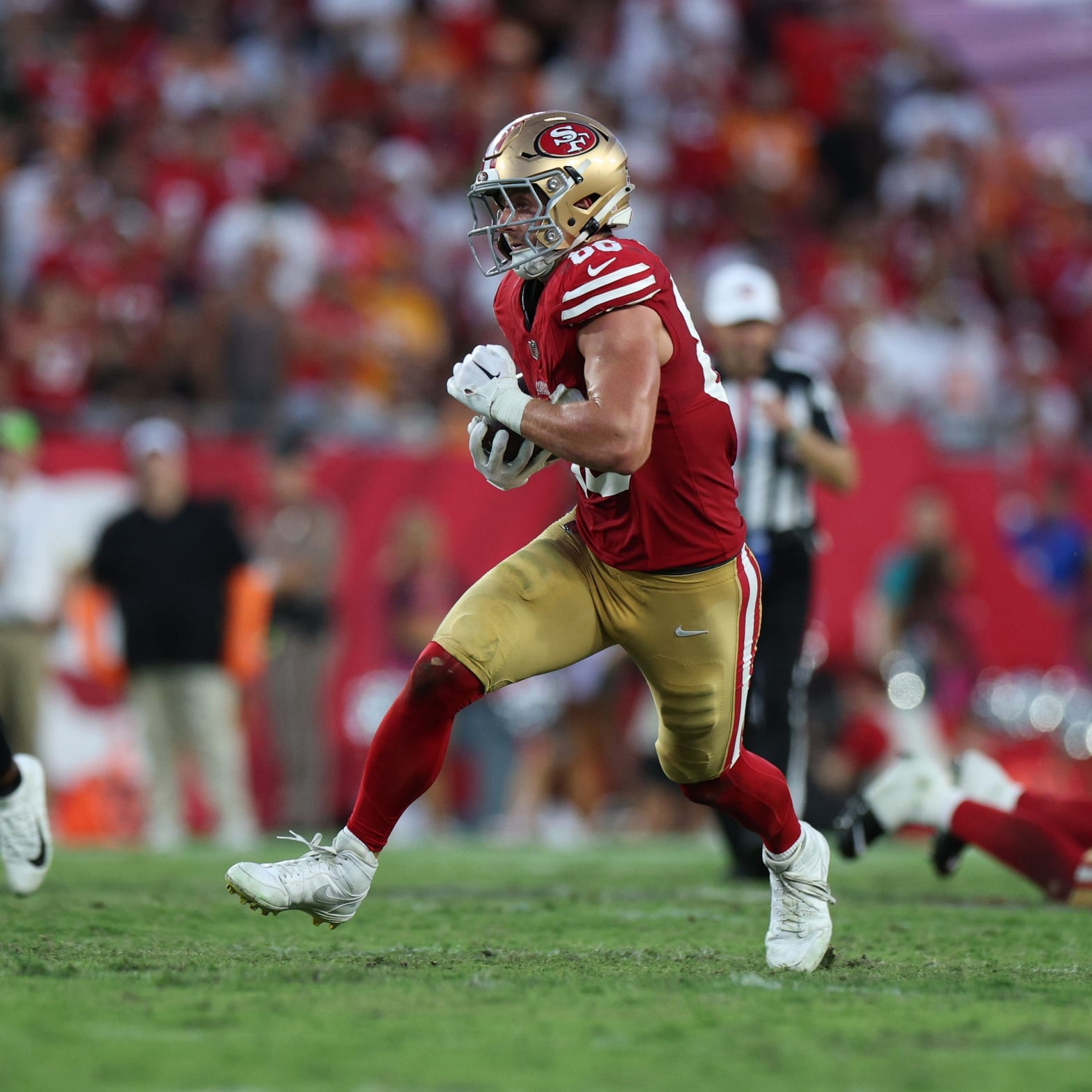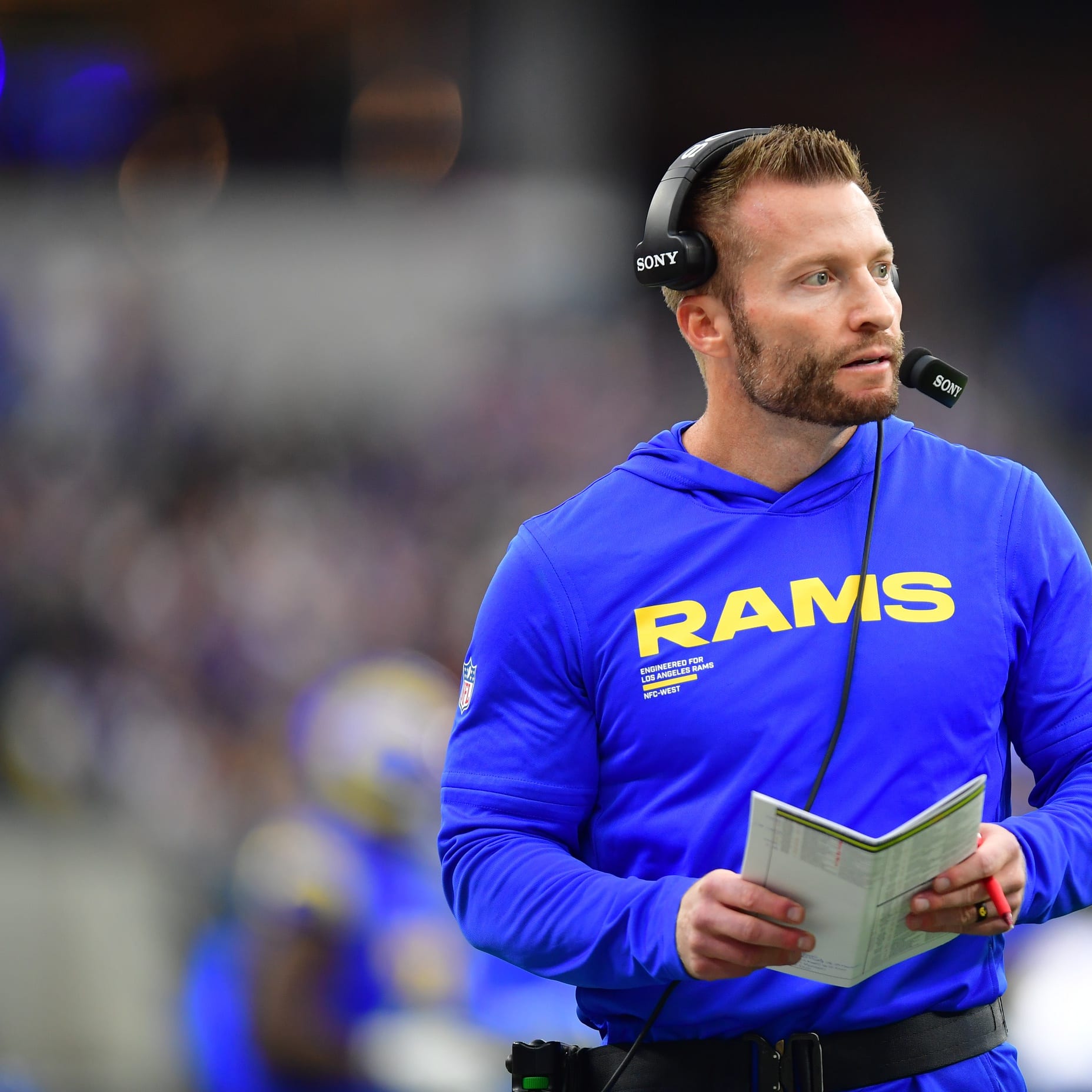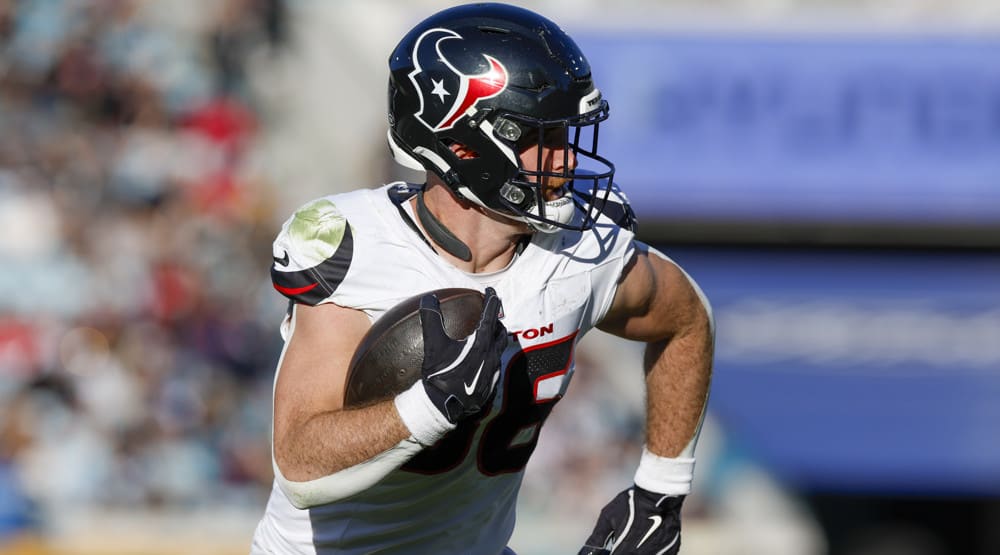THE SKINNY
Returning key injured players will improve the Texans, but health wasn't the sole reason the team floundered in 2017. It had many flaws on both sides of the ball. New GM Brian Gaine made the necessary offseason moves. It's now a matter of coach Bill O'Brien integrating those new pieces.
THREE THINGS TO KNOW
PROTECTING WATSON
The first order of business for new GM Brian Gaine was to acquire talent to bolster the offensive line in order to better protect franchise quarterback Deshaun Watson, who is coming back from a torn ACL. The Texans didn't have adequate depth to survive injuries and allowed 54 sacks (31st in the NFL). Watson's maneuverability helped minimize the poor protection, but there will be questions about the injury's impact to his mobility. Houston needed guards, tackles and a blocking tight end. Gaine's first acquisition was Zach Fulton, a 26-year-old interior lineman who started 46 games over four seasons with the Chiefs and likely will slot in at left guard. Senio Kelemete, a five-position player, was next, and he'll get a shot at the other guard spot. Both tackle spots are available with Julien Davenport, who finished up 2017 as the starting left tackle, and 2018 third-round pick Martinas Rankin, another multi-positional player, the leading candidates. It's notable to see Gaine go after players with positional flexibility, which means no significant drop-off in case of injury. The Texans could have four new blockers in front of Watson, putting pressure on the coaches to establish a cohesive unit among pieces with no experience playing together.
HAS THE DEFENSE IMPROVED?
The Texans' defensive street cred took a big hit in 2017. Houston ranked last in scoring defense (27.2 PPG), 24th against the pass (237.4 YPG) and tied for 29th in passing touchdowns allowed (30). They missed J.J. Watt (leg) and Whitney Mercilus (pectoral), two key members whose ability to apply pressure on quarterbacks affected the unit's ability to contain passing attacks. However, the team's brass knew not to rely on the returning stars alone to fix matters. They aren't going to make the 34-year-old Johnathan Joseph any better suited to keep up with quick wideouts like T.Y. Hilton. Nor will they replace the void created when A.J. Bouye turned a career campaign in 2016 with the Texans into a five-year deal in Jacksonville. Replenishing the secondary was the biggest offseason need. The major moves were to add cornerback Aaron Colvin (Jaguars) and safety Tyrann Mathieu (Cardinals) in free agency. Lastly, linebacker Brian Cushing (free agency) moved on. He has a ton of institutional knowledge, but second-year man Zach Cunningham got experience during Cushing's 10-game PED suspension last season, and the team is high on Benardrick McKinney, who will fill the leadership vacuum. Plus, the team used the draft to add pieces at every level, including safety Justin Reid, a third-rounder who will compete for a starting job right away.
HELPING HOPKINS, HELPING WATSON
In DeAndre Hopkins, the Texans have one of the best receivers in the game. He's been productive despite having worked with mediocre quarterbacks in the past. Paired with Deshaun Watson in 2017, the duo changed the offense overnight from run-first to pass-oriented. Hopkins thrived, as he averaged 95.6 yards with six touchdowns in five games between Weeks 3 and 7, when the Texans averaged 39 points per game. Those were fun days, before Watson suffered a season-ending injury. It will be interesting to see what the duo accomplishes over a full slate. For that to happen, the Texans need to better protect Watson and give him more weapons. The latter will prevent opponents from double- or triple-teaming Hopkins. Will Fuller, who had seven TDs in four games while working with Watson, has been inconsistent when not injured. Physical NFL cornerbacks especially give Fuller trouble. Beyond Hopkins and Fuller, depth is an issue. Braxton Miller, the organization's latest miss as a third wideout, is on his last chance. Bruce Ellington was brought back but is largely unproven. The top two tight ends missed time last year due to concussions, one of which led C.J. Fiedorowicz to retire. Two tight ends and a slot receiver were added in the draft, which helps, plus running back Lamar Miller, who caught 36 passes in 2017, can also factor in.
PIVOTAL PLAYER: Deshaun Watson
Watson is central to the Texans' success. One can argue there was a direct line from his Week 8 ACL injury to a four-win season that included a 1-8 run without the QB. The dynamic offense Watson directed was shut down without him, averaging just 13.6 points per over the final nine games. He needs to be protected.
BAROMETER
RISING: D'Onta Foreman
Drafted to provide a one-two punch in the backfield with starter Lamar Miller, Foreman was gaining a higher profile late in the year before sustaining an Achilles' injury that ended his first pro season.
FALLING: Lamar Miller
Miller averaged a career-low 3.7 YPC in 2017 and lost touches to Foreman before the rookie's injury. Still, Miller is an effective receiver who may have value in a potentially explosive offense led by Deshaun Watson.
SLEEPER: Bruce Ellington
Ellington meshed well with Watson while filling in for the injury-prone Will Fuller in 2017, earning another year with the Texans. Ellington has moved to third on the depth chart, ahead of the disappointing Braxton Miller.
KEY JOB BATTLE – SECOND RUNNING BACK
With starting running back Lamar Miller popping up on preseason "bust" lists, making sure to handcuff him to Houston's top backup will be a popular draft strategy. Miller averaged a career-low 3.7 yards per rush and lacked the explosiveness he showed Miami, which motivated the Texans to sign him as free agent prior to 2016: he's had 11 plays of 20-plus yards since joining the Texans, compared to 23 such plays in his final two years for the Dolphins. Coach Bill O'Brien has a quick trigger, so if Miller disappoints, D'Onta Foreman is in line for an expanded role – if he regains full strength after rupturing his Achilles last November. Foreman's status is still an open question as training camp commences. After Miller and Foreman, the running back depth chart reads Alfred Blue and Tyler Ervin.
KEY ACQUISITIONS:
Tyrann Mathieu – S (from Cardinals)
Replenishes talent drain in the secondary from the last two offseasons.
Jordan Akins – TE (Rd. 3, No. 98 – Central Florida)
Team's tight ends had worst catch percentage, were last in TDs in 2017.
Sammie Coates – WR (from Browns)
A home-run threat, but the Texans already have Will Fuller.
Aaron Colvin – CB (from Jaguars)
Payback for the Jags poaching A.J. Bouye last year.
Keke Coutee – WR (Rd. 4, No. 103 – Texas Tech)
A slot receiver to challenge Braxton Miller; returns kicks, too.
KEY LOSSES:
Brian Cushing – LB (FA)
Injuries and pay grade mean he'll look elsewhere for a job.
Derek Newton – OT (FA)
Could never stay healthy enough to lock down right tackle job.
C.J. Fiedorowicz – TE (retired)
In the wake of his retirement, the team drafted two tight ends.
THE INJURY FRONT
Deshaun Watson, QB – Watson, who missed the final nine weeks of the 2017 season due to a knee injury, progressed enough in his rehab to take reps with the first-team offense during the initial practice of training camp, thus avoiding the PUP list. Houston was dealt a bad hand in terms of injuries last fall, but none had a bigger impact than Watson's ACL tear. The difference between a healthy and injured Watson was on stark display in 2017, when Houston averaged 21 fewer points per game without him under center.
J.J. Watt, DE – Limited to five games last season by a tibial plateau fracture, Watt made spectacular headway in his recovery, enough so that he was cleared to practice without limitations at the start of training camp. The past two years have been a grind for the three-time Defensive Player of the Year, who missed 24 games due to back and leg injuries. When healthy, he's a highly disruptive force, but there remain questions as to what level he'll be able to confound offenses in the coming campaign. Even if he's not at the peak of his powers, Watt can still make an impact and deliver the kind of quarterback pressure that will improve the team's defense, which slipped to 24th against the pass and last in scoring defense in 2017.
D'Onta Foreman, RB – The Texans have run the messaging gamut regarding Foreman's availability after the running back suffered a ruptured Achilles tendon in November of 2017. In late March, coach Bill O'Brien said he should be ready for training camp barring an unforeseen setback. In May, just before OTAs, the team's tune shifted to being hopeful he'll be ready for training camp. When June rolled around, they were hopeful for a full recovery for the start of the regular season but weren't counting on him being available for Week 1 against the Patriots. One fact is known: that ruptured Achilles' tendons are serious business – one effectively ended the career of former Houston running back Arian Foster – with one recent study concluding players returning from Achilles repair require 340 days on average to return to the field with a post-surgery performance drop-off, particularly among running backs.


